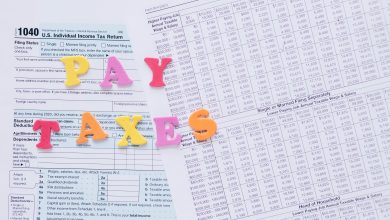How to Cut Your Monthly Expenses

How to Cut Your Monthly Expenses: A Step-by-Step Guide
Whether you’re saving for a big purchase, building an emergency fund, or simply want to reduce financial stress, cutting down on monthly expenses is a great place to start. By making some thoughtful adjustments to your spending habits, you can free up more money without sacrificing your quality of life. Here’s a practical guide on how to cut your monthly expenses and get your budget in shape.
1. Track Your Spending
The first step to cutting your monthly expenses is understanding where your money is going. Many people don’t realize how much they spend on small, everyday purchases. Tracking your spending gives you a clear picture of your financial habits.
- Use a Budgeting App: Apps like Mint, YNAB (You Need a Budget), or even simple spreadsheets can help you track your income and expenses in real-time.
- Categorize Your Spending: Divide your expenses into categories such as housing, food, utilities, entertainment, and transportation. This will help you identify areas where you may be overspending.
- Review Bank Statements: Go through your bank and credit card statements from the last few months to spot any patterns or unnecessary subscriptions.
2. Cut Unnecessary Subscriptions
It’s easy to accumulate subscriptions for streaming services, magazines, apps, or other monthly services. While each one may seem affordable on its own, together they can add up to a significant expense.
- Audit Your Subscriptions: Look at all your recurring subscriptions. Cancel the ones you don’t use often or can live without.
- Use Alternatives: Consider consolidating services. For example, instead of paying for multiple streaming platforms, stick with just one or take advantage of free trial periods and rotate services.
3. Lower Your Utility Bills
Utility bills like electricity, water, and heating are necessary, but there are ways to reduce them without sacrificing comfort.
- Switch to Energy-Efficient Appliances: Energy-efficient appliances use less electricity and can lower your monthly energy bills. While they might be more expensive upfront, they save you money in the long run.
- Use Smart Thermostats: Smart thermostats can help you reduce heating and cooling costs by adjusting the temperature automatically based on your habits.
- Unplug Electronics: Even when they’re off, electronics can use “phantom energy.” Unplug devices when they’re not in use or invest in power strips that can be turned off easily.
- Water-Saving Habits: Fix any leaky faucets and consider installing low-flow showerheads and toilets to save on water bills.
4. Cut Back on Dining Out
Eating out, even for lunch or coffee, can be one of the biggest budget-busters.
- Cook More at Home: Try to plan your meals and cook at home as much as possible. Not only is it healthier, but it’s also much cheaper than dining out or ordering takeout.
- Pack Your Lunch: If you tend to buy lunch during the workday, packing a lunch from home can save you $50 to $100 or more each month.
- Limit Dining Out: Instead of cutting out restaurants entirely, set a budget or limit how often you eat out. Choose special occasions or weekends to treat yourself.
5. Shop Smarter for Groceries
Grocery shopping is another area where you can cut costs without sacrificing quality.
- Make a Shopping List: Plan your meals for the week and stick to a shopping list. This helps you avoid impulse buys and cuts down on food waste.
- Buy Generic Brands: Store brands are often just as good as name brands but are significantly cheaper. Test out generic options and see where you can make the switch.
- Use Coupons and Discounts: Take advantage of store loyalty programs, digital coupons, and cashback apps to save money on groceries.
- Buy in Bulk (When it Makes Sense): For items you use regularly, buying in bulk can save money over time. Just be sure you’re not purchasing perishable items that will go to waste.
6. Reduce Transportation Costs
Whether you’re driving or using public transportation, commuting can eat up a large portion of your monthly expenses.
- Carpool or Use Public Transportation: Sharing a ride with coworkers or using public transit can save on gas and reduce wear and tear on your vehicle.
- Drive Less: Plan errands more efficiently to reduce unnecessary trips. Walking or biking when possible can also save you money on gas and car maintenance.
- Refinance or Trade In Your Car: If you have a high car payment, consider refinancing your auto loan for a lower rate or trading in your car for a more affordable vehicle.
7. Reevaluate Your Housing Costs
Housing is typically the largest expense in most budgets, but there are ways to lower this cost.
- Downsize or Negotiate Rent: If you’re renting, consider moving to a smaller or more affordable place when your lease is up. Alternatively, negotiate with your landlord for a better rate.
- Refinance Your Mortgage: If you own your home and mortgage rates are lower than what you’re paying, refinancing could reduce your monthly payments significantly.
- Rent Out Extra Space: If you have an extra room or parking spot, consider renting it out for extra income to help offset housing costs.
8. Cut Credit Card Interest
Credit card debt can be a costly monthly expense if you’re carrying a balance with high interest.
- Consolidate Debt: Consider consolidating your credit card debt into a lower-interest personal loan or transferring balances to a card with a 0% introductory APR.
- Pay More Than the Minimum: If possible, pay more than the minimum monthly payment to reduce your overall debt faster and save on interest charges.
- Negotiate Interest Rates: Sometimes, you can negotiate with your credit card company for a lower interest rate, especially if you’ve been a loyal customer.
9. Look for Free Entertainment
Entertainment is essential, but you don’t have to spend a fortune to enjoy your free time.
- Explore Free or Low-Cost Activities: Many cities offer free museums, concerts, parks, or community events. You can also swap costly nights out for movie nights at home or outdoor adventures like hiking.
- Use the Library: Libraries offer free books, movies, and even digital content like e-books and audiobooks. It’s a great way to cut back on entertainment costs.



